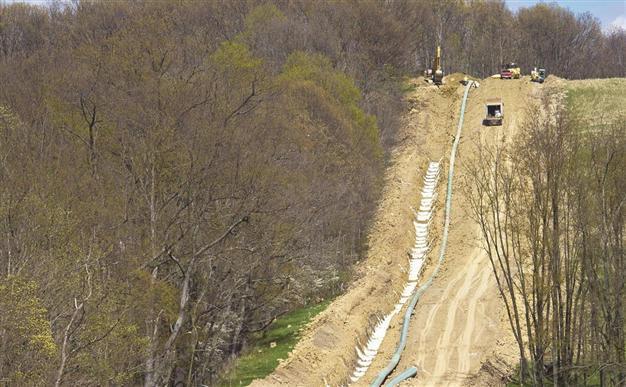Iraqi Kurds announce new oil pipeline to Turkish border
LONDON - ANKARA - Hürriyet Daily News

Some companies are set to finalize an agreement to carry the Iraqi Kurdish oil near the southeastern Turkish border, according to Turkish sources. AFP photo
Iraqi Kurdistan will start a new oil pipeline to Turkey within months, its energy minister, Ashti Hawrami, told a conference in London yesterday, increasing the autonomous region’s control over its resources in a dispute with Baghdad, as reported by Reuters.A Turkish source, however, told the Hürriyet Daily News yesterday that the planned pipeline would not cross the border. Some companies were about to finalize an agreement to carry the KRG oil near the southeastern Turkish border, the Turkish source said, adding that any company could ask authorization to build a pipeline from inside a country to the borderline.
Such a move, which was announced by Hawrami, will provoke Baghdad, energy sources said. Hawrami noted that the KRG would complete the pipeline by the end of September with an initial capacity of 300,000 barrels per day (bpd). With the further construction of new pumping stations, the pipeline would be able to export more than 1 million bpd by the end of 2015 and 2 million bpd by 2019, Hawrami said, Reuters reported.
Baghdad has recently announced it aims to ramp up oil production by nearly 45 percent by the end of 2014 - without any input from its autonomous Kurdistan region - which suggests a lasting compromise in their long-running oil feud may be a way off.
The KRG has stopped exporting through the central government-controlled pipeline, which has stranded its oil output. It has been able to truck only small amounts to Turkey on road tankers.
“Nowhere in the world does 1 million barrels per day remain stranded, so I’m confident that the KRG’s exports via pipeline will be a reality very soon,” Hawrami said. The KRG’s oil production capacity is now at 300,000 bpd and is rising rapidly to 400,000 bpd by the end of this year, most of it destined for export, he added.
No agreement between KRG and Baghdad
Sales of the Kurdish oil via the central government through Iraq’s federal pipeline system also could resume but that will depend on a permanent resolution of the political and constitutional issues between Arbil and Baghdad, Hawrami said.
No agreement has been reached so far between Iraq and the KRG on payments to oil companies working in the region, despite a meeting earlier in June between leaders on both sides.
Hawrami stressed the benefits of having a direct pipeline. “The new export infrastructure will be a cost-effective and secure solution that will enable more of Iraq’s oil and gas to reach the international market, which will allow all the citizens of Iraq to benefit from increased revenue,” he said.
Genel Energy said in February it expected to export oil by pipeline from its fields in Iraqi Kurdistan by 2014. Turkish sources said before that the KRG was on track to finish the pipeline soon.
















